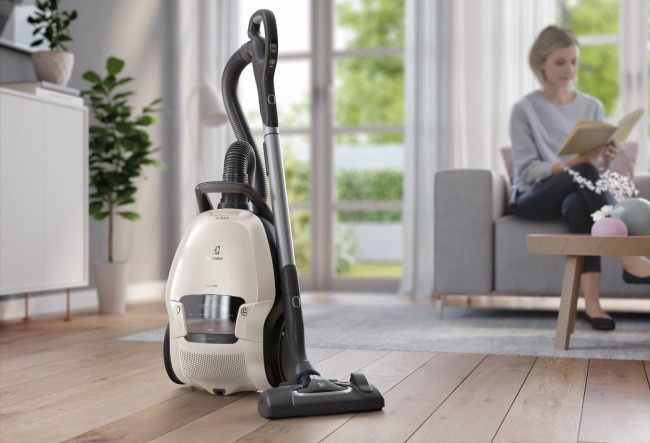
Electrolux is embracing the circular economy – where resources are used as long as they possibly can and then recovered to ensure they get a new life.
One way we are working toward a circular economy is by increasing our use of recycled materials. After the product use phase, appliance raw materials have the largest lifecycle environmental impact. By replacing virgin materials with recycled ones, we significantly reduce environmental impact and promote a more closed resource loop.
Producing the plastic we use in our products generates CO2 emissions equivalent to the emissions from our operations and transport activities combined. In other words, we can make a significant contribution to reducing resource use and tackling climate change by increasing the amount of high-quality recycled plastic in our products.
Looking at sheer volumes, steel is the material we use the most and is a significant source of CO2 emissions. By shifting our supply from steel made from iron ore to scrap-based steel, we can significantly reduce our carbon footprint from materials.
In 2018, we used 20 times more recycled plastic than in 2011, which is when our reporting in this area started. Electrolux has increased the amount of recycled steel from 7% in 2013 to 24% in 2018, which has reduced the average annual carbon emissions per metric ton of steel from 2.1 to 1.7 metric tons of CO2, and the annual CO2 emissions by 251,000 metric tons. Although it’s an improvement compared to 2013, we have seen a drop in 2018 compared to 2017 with regards to the use of recycled steel. This is mainly due to an ongoing international trade conflict, which is expected to further impact the use of recycled steel in 2019.
Extending the life of products
We also want to limit the number of products that are unnecessarily sent to landfills. In 2017, we began a cooperation in Norway with remanufacturing company, Norsk Ombruk.
Major appliances go through a series of rigorous tests and quality checks before being sold to new owners. Norsk Ombruk offers a two-year guarantee on all these products.
Similar partnerships are in place in other parts of Europe.
During 2018, we also began a project with El-Kretsen, a Swedish e-waste collection system, to look into how we can harvest functioning products out of the flow of products that consumers have discarded. The first step of this project ends May 2019. Depending on the outcome, a refurbishment activity on a larger scale could be started during the year.
Pay-per-use models: One of the keys to a circular economy
Yet another way we are adopting a more circular business model is by offering more pay-per-use models, where we retain ownership of the appliances (and thereby the materials) and can ensure they are utilized to their utmost. For example, in Sweden we offer a pay-per-use model for our Electrolux Pure i9 robotic vac.
In addition, at the start of 2018, we acquired Schneidereit GmbH, a supplier of laundry rental solutions for professional customers in Germany and Austria. Schneidereit GmbH solutions allow customers a carefree experience by supporting the product throughout its lifetime. This enables customers to run their businesses without worrying about asset ownership or maintenance.
From a circular economy perspective, this means that we make certain to maximize the value of the resources that went into manufacturing those professional laundry appliances.
Meet our Pure D9 Green
Recycled plastic is currently being used in vacuum cleaners and white goods.
An example is the Pure D9 Green vacuum cleaner. It’s made from 70% recycled plastic and is one of our most energy-efficient vacs. Plus, the packaging it comes in is made of 82% recycled material.

This case study is related to our promise Better use of resources
Electrolux
Electrolux shapes living for the better by reinventing taste, care and wellbeing experiences that make life more enjoyable and sustainable for millions of people. Through our brands, including Electrolux, AEG and Frigidaire, we sell more than 60 million household and professional products in more than 150 markets every year.
S:t Göransgatan 143
SE-105 45 Stockholm, Sweden